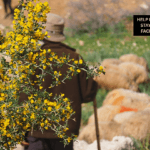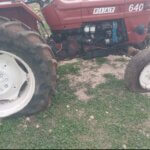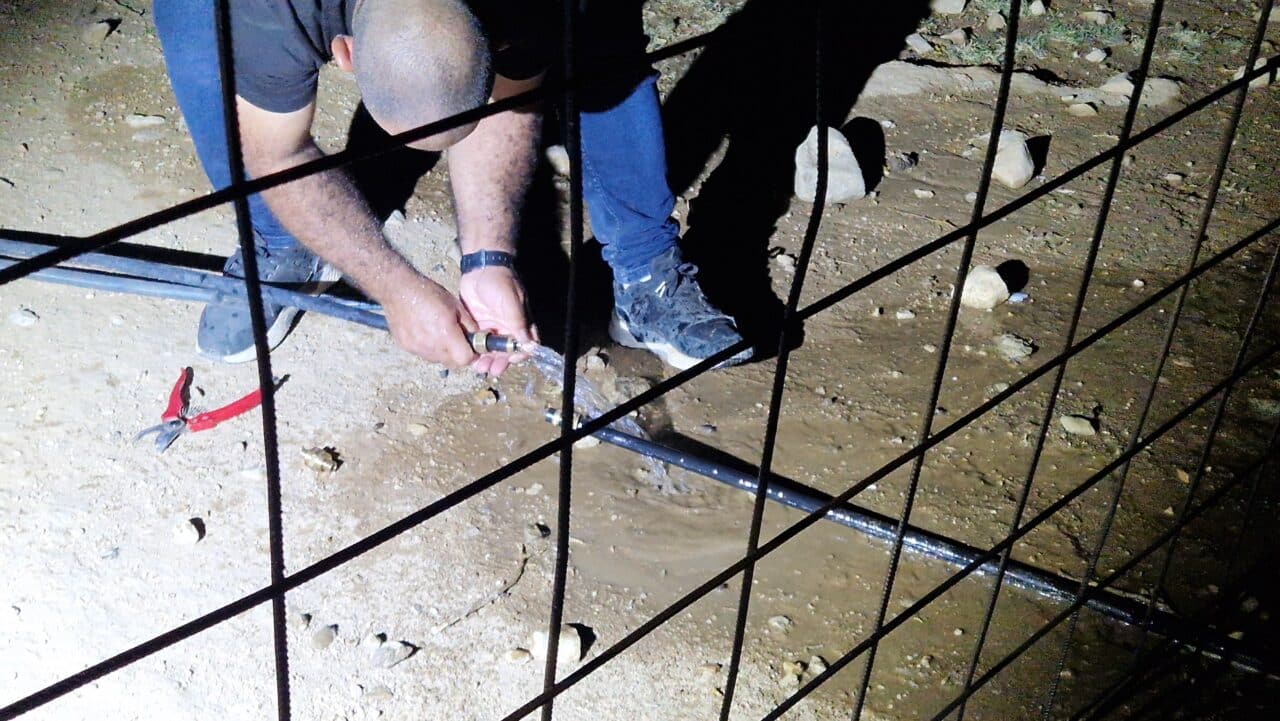Planting olive trees in Fasayil al Wusta
 We, as Jordan Valley Solidarity and friends from Brazil, France, Italy and Canada, started work early in the morning to plant olive trees in Fasayil al Wusta. The families living in this area had their homes and out-buildings demolished in 2012 and 2013. They still have demolition orders hanging over them, and live in fear that the occupation forces could come and demolish their homes and animal shelters again at any time. Fasayil, before this occupation, was famous for its green fields and beautiful farms – now the entire land is empty and without any life because the settlements control the entire water supply.
We, as Jordan Valley Solidarity and friends from Brazil, France, Italy and Canada, started work early in the morning to plant olive trees in Fasayil al Wusta. The families living in this area had their homes and out-buildings demolished in 2012 and 2013. They still have demolition orders hanging over them, and live in fear that the occupation forces could come and demolish their homes and animal shelters again at any time. Fasayil, before this occupation, was famous for its green fields and beautiful farms – now the entire land is empty and without any life because the settlements control the entire water supply.
The central purpose of this project is to change the reality for this community, living on occupied land – to have an immediate impact and improve the live of local people, whilst taking political action that directly challenges the occupation.
It is important to understand that Fasayil was one unified village that after the occupation was divided in three different areas: Fasayil Tahte, Fasayil al-Wusta and Fasayil al-Fauqa.
The olive trees are a traditional aspect of the Palestinian culture. By planting them, we also help to keep the culture alive. By doing this, these families are given the opportunity to have their own income, so they do not have to work in the settlements anymore. Also for the people who live in Fasayil al Wusta this helps to protect their land from being confiscated.
Finally, with this message from Jordan Valley Solidarity and our friends from Brazil, France, Italy and Canada by non-violent resistance, we hope to affect other people around the world, especially those who support the Israeli occupation.





